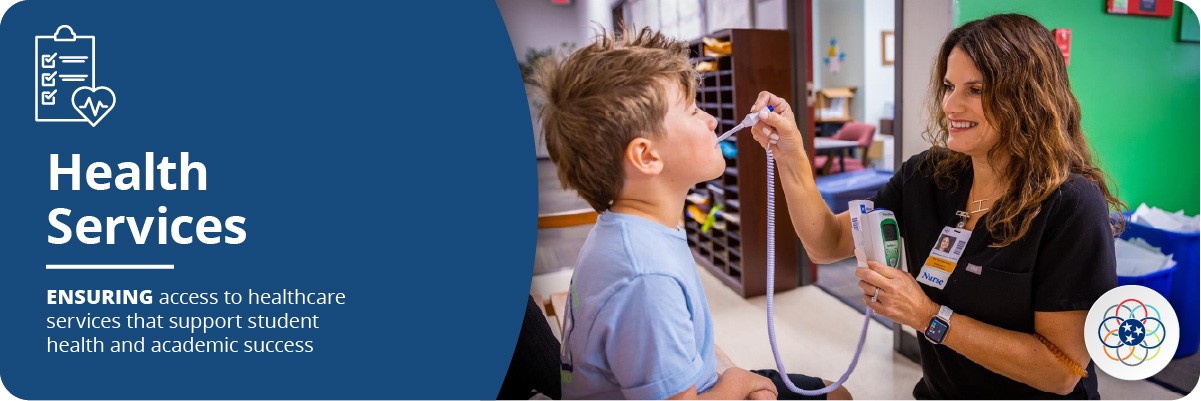Health Services

Health Services strengthens the educational process by promoting, improving, and maintaining health and wellness for students. Health services enable students to attend school in a safe learning environment, reducing health-related barriers to learning. Health services intervene with actual and potential health problems, including providing first aid, emergency care, and assessment and planning for the management of chronic conditions (such as asthma or diabetes). Health services, provided and/or supervised by school nurses, connect school staff, students, families, community and healthcare providers to promote the healthcare of students and a healthy and safe school environment. Health Services personnel may include qualified healthcare such as school nurses, and/or health aides, and unlicensed assistive personnel (UAP). School districts and nonpublic schools develop job descriptions for these roles. School districts and nonpublic schools should ensure that school staff, who are assigned health-related tasks, are working within their job descriptions and within their scope of practice.
Services include, but are not limited to, the following:
- Daily and continuous health services for children with acute and chronic health care needs in the school setting
- Prevention and control of communicable disease
- First aid and emergency care for student and staff illness or injury
- Promotion of optimum sanitary conditions for a safe school facility and school environment
- Educational and counseling opportunities for promoting and maintaining individual, family, and community health.
Health Services actively collaborate with school and community support services to increase the ability of students and families to adapt to health and social stressors, such as chronic health conditions or social and economic barriers to health, and to be able to manage these stressors and advocate for their own health and learning needs. Collaboration with community health care providers ensures access and referral to primary health care services to ensure early intervention and fosters appropriate use of primary health care services. School districts may also choose to provide additional health services beyond the role of the school nurse, such as sick visits and preventive care, through school-based/school-linked clinics within their school system. School-based and school-linked clinics should be integrated with school nursing services, if a local education agency (LEA) so chooses to offer services, to support attendance and reduce health barriers to learning.
Coordinated School Health has compiled information and resources about important health and safety topics, available below.
- Actionable Strategies for Reducing Health-Related Chronic Absenteeism
- American Academy of Pediatrics
- Emergency Planning for School Nurses
- Providing Health Services on Field Trips
- TN Chapter of the American Academy of Pediatrics
- National Association of School Nurses
- Guidelines for Health Care in a School Setting
- School Nurse Competencies and Evaluation
- School Nurse Orientation Resource
- School Nursing Procedure Tools & Resources
- School Nurse Staffing Assignments for Safe Care
- Special Education and Section 504 Services Toolkit for School Nurses
- Tennessee Association of School Nurses
- Diabetes Information Sheet: English | Spanish | Arabic | Kurdish Bahdini | Somali
- Training Resources for Schools | American Diabetes Association